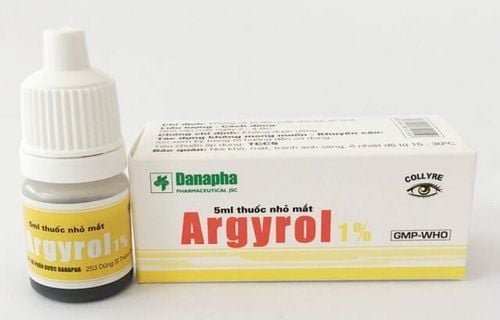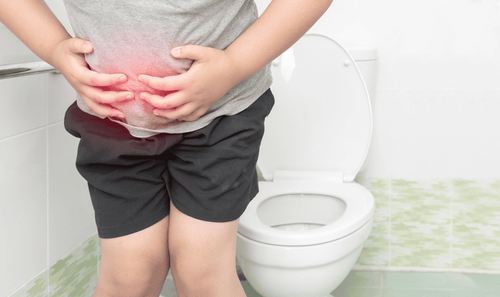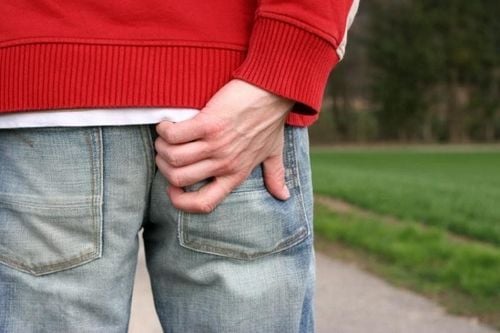This is an automatically translated article.
The article was professionally consulted with resident doctor Duong Van Sy - Pediatrician - Neonatologist - Department of Pediatrics - Neonatology - Vinmec Hai Phong International General Hospital.Constipation in children is a fairly common problem, causing trouble and confusion for many parents. While children absolutely cannot control this problem on their own, parents need to know how to help children develop the best conditions in the first years of life.
1. What is fecal incontinence?
Stool incontinence in children is sometimes called fecal incontinence. This situation is repeated with the phenomenon of sticky stools on the child's pants while the child is completely unaware of this.Fecal incontinence usually occurs after the child is 4 years old, when the child has learned to use the toilet. In most cases, fecal incontinence is seen as a symptom of chronic constipation. Only a very small number of children have fecal incontinence without constipation and it may be due to psychological problems.
Fecal incontinence is always annoying for parents and, above all, confusing and confusing for children when children have the awareness that they cannot control this on their own. However, with patience and positive adjustments from parents, fecal incontinence along with constipation will resolve completely in the first years of life.
2. What are the symptoms of constipation caused by fecal incontinence?
Signs and symptoms of constipation-induced fecal incontinence may include:Leakage of loose stools onto underwear, which can be mistaken for diarrhea Constipation with dry, hard stools Obstruction of the rectal lumen Frequency of bowel movements very little Anorexia Dull abdominal cramps Accompanied by daytime incontinence or nocturnal enuresis Repetitive urinary tract infections, typically in girls.
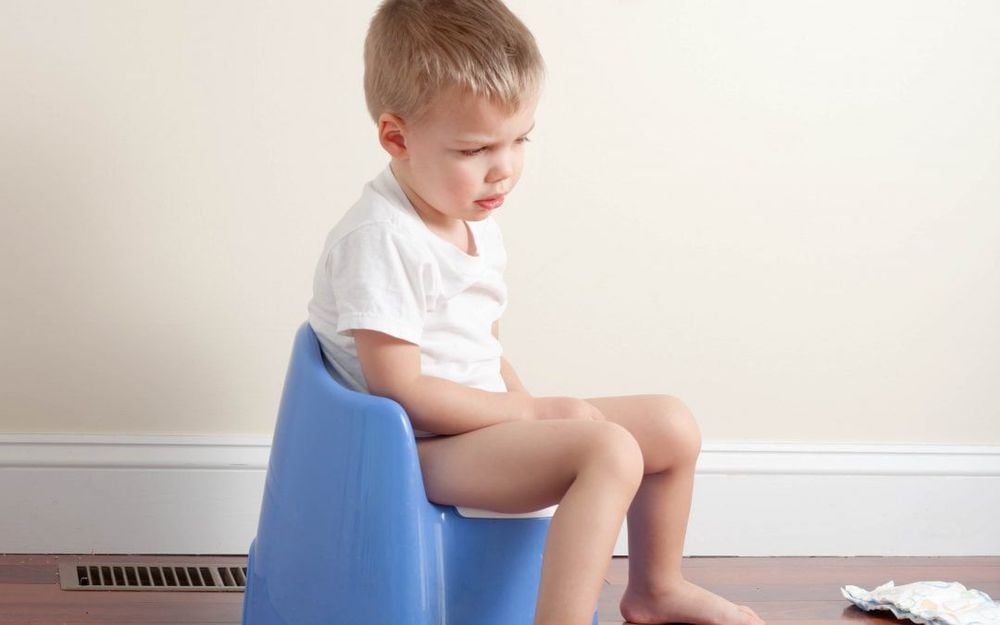
3. What are the causes of fecal incontinence?
There are several causes of fecal incontinence, the most common being constipation and emotional problems.3.1. Constipation Most cases of diarrhea in babies are caused by prolonged constipation.
When a child is constipated, their stools become hard, dry, lumpy, and can be very painful to pass through the anal canal. Therefore, children are afraid to have a bowel movement and make the situation worse. The longer the stool stays in the colon, the harder it is for the child to push the stool out. The colon wall has to lengthen and dilate further, sending signals through local nerves, signaling the need to increase bowel movements to clear the obstruction. Because of this, the upper soft or liquid stools are pushed down, leaking through the interstitial spaces around the solid stool and out.
Some causes of constipation include:
Fear of going to the toilet, especially when going to school or away from home Due to painful stools Not wanting to interrupt play or other activities Eating too little fiber Not drinking enough water Abnormal intestinal structure such as long bowel syndrome 3.2. Emotional problems Emotional stress can lead to fecal incontinence. A child may experience stress from:
Toilet training too early when the child is not ready Changes in the child's life, such as moving house, changing diet, starting school Emotional stressors, such as a parent's divorce or having a baby In addition, a child with phobias may not only experience fecal incontinence or bedwetting, but also experience a host of other negative emotions, including confusion, frustration, shame, and anger. If a child is teased by friends or criticized or punished by an adult for this "mistake", the child may feel even more pessimistic and sometimes even lose his or her own self-esteem.
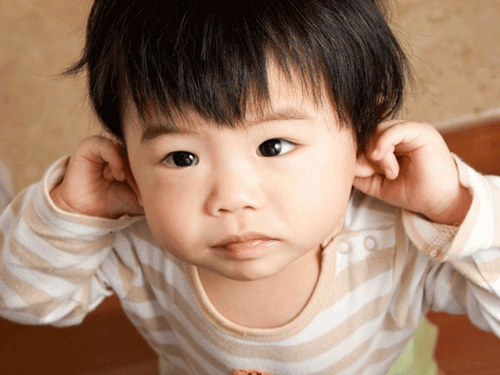
Use of medications that can cause constipation, such as cough suppressants Attention deficit hyperactivity disorder Autism syndrome Frequent anxiety or depression depression
4. How is fecal incontinence diagnosed?
To identify fecal incontinence and rule out other conditions, in addition to a typical history and persistent constipation, the doctor still needs to perform steps to examine the child's intestinal system. In particular, it is important to perform a rectal examination through the anal opening with a lubricated finger while the other hand presses on the abdomen of the child.In addition, other imaging modalities, such as ultrasound or contrast-enhanced colonoscopy, are sometimes necessary to examine the obstruction as well as the intestinal structure if a congenital malformation is suspected. born.

5. How to limit fecal incontinence in children?
In general, treatment of fecal incontinence is initiated as soon as possible, in order to clear the blockage and limit physical damage to the intestinal system. To do so, parents need to clean the intestines of their children with laxatives, through oral pills, suppositories placed in the rectum or anal pump.Next, in order to maintain the regularity of the bowel lumen as well as encourage healthy bowel movements, after the colon has been cleaned, it is necessary to create a habit of regular bowel movements. often. To do so, parents need to be persistent with the following specific things:
Make a diet high in fiber from fruits and vegetables Drink enough water during the day Train children to go to the toilet as soon as possible when the child is ready Encourage the child to increase movement, play to stimulate bowel movements well Arrange toilet time: Have the child sit on the toilet for 5 to 10 minutes at a regular time rate every day. This should be done best after the main meal of the day because this is when bowel movements are most active. Practice sitting on the toilet properly. Use a seat that is appropriate for the size of the child. If sharing the toilet with an adult, a small chair should be placed under the child's feet so that the child can feel more comfortable. At the same time, the right foot position can help put more pressure on the abdomen, making it easier to push to have a bowel movement. In addition, parents need to understand and empathize that the child is completely incapable of controlling fecal incontinence. Therefore, encourage and actively help children overcome this fear instead of blaming, criticizing or punishing the child. These things make children more anxious, mentally unstable and will make fecal incontinence worse.
If the child has fecal incontinence due to psychological problems, parents need to take the child to see a pediatric psychiatrist. Sometimes fecal incontinence is only the most prominent symptom, but the child also has other unusual symptoms that have not been detected. Early examination and adjustment will help children have the coming years to develop and integrate like children of the same age.
Please dial HOTLINE for more information or register for an appointment HERE. Download MyVinmec app to make appointments faster and to manage your bookings easily.





